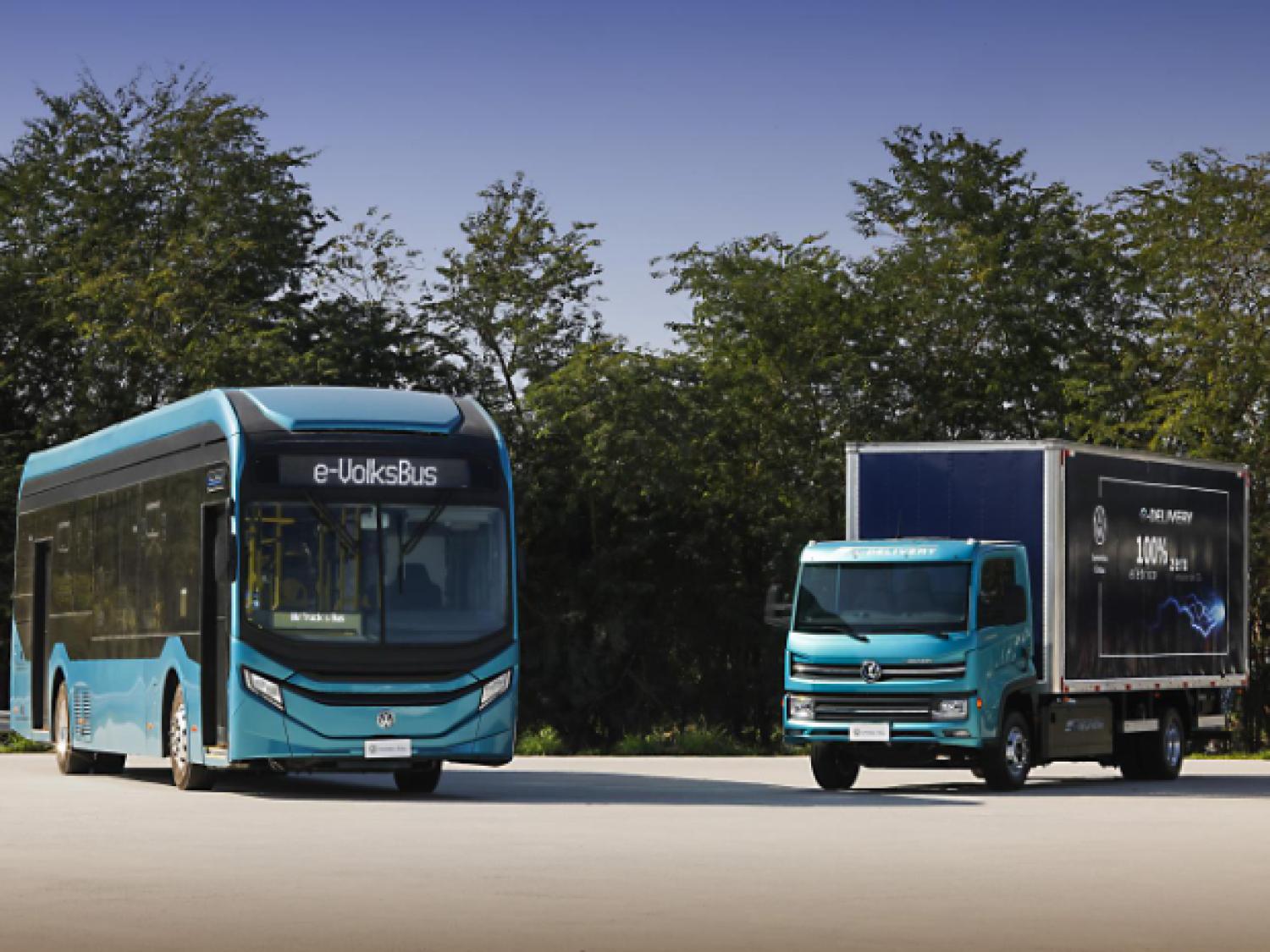
As part of its aim to develop sustainable transport solutions for all, Volkswagen Truck & Bus is consolidating a true center of intelligence in e-mobility in Brazil, pioneering various technological solutions. It is located in its factory in Resende (RJ), where the brand's global research and development center is also located.
“The main results of this expertise are the launch of the first electric truck designed and produced in Latin America in 2021 and now presentation of the e-Volksbus, as well as a number of research projects and solutions to make this sustainable mobility viable, including the most recent one announced for the development of Niobium-based batteries. All this work began in 2018, when an engineering team dedicated to electric vehicle projects was created”, explains Rodrigo Chaves, Vice President of Engineering at VWTB.
Another important result of this initiative is the flexible modular architecture, a patented solution from VWTB that made it possible to derive the third product in a short time: the e-Volksbus, Volkswagen's first 100% electric bus. The configuration created by the company speeds up the adaptation to different truck and bus platforms, with the development of vehicles in record time and a high degree of component customization. As for the e-Volksbus, as well as being an extension of the architecture, it inaugurates the concept of a base platform chassis, validated for Latin American applications. It therefore has the potential to be rapidly developed into new variants.
Local software development is also one of the major turning points that has accelerated the electrification of new models. Over 70% of the vehicle's control functions are done in-house by VWTB's own team, which also allows for continuous improvement with new functions that add value for the customer.
One of VWTB's strategies for consolidating its position as a benchmark in electric vehicles is the fact that both the e-Delivery and the e-Volksbus share a large part of their production on the same line as the other diesel vehicles. Only the assembly of the batteries was allocated to a specialized and dedicated area, the e-Shop. This concept was created from the great synergy between the manufacturing and engineering areas, optimizing investments.
With this, the chassis receives all the expertise, efficiency and quality shared with the other vehicles on the production line. It also has a team specialized in assembly involving high voltage systems, operating with 650V, following the strictest safety protocols. The e-Volksbus has additional synergy. The batteries are mounted on the roof of the vehicle during the bodywork stage, which is also monitored by VWTB, and a final check and release is done to ensure a quality end product for customers.
Electrical safety tested and guaranteed
With the creation of this e-mobility center in Resende, the plant has also expanded its processes and expanded the current validation tests for diesel models with new procedures to add even more safety, robustness and reliability to the final electric product. Today there are more than 50 new specific tests for electric vehicles, ranging from measuring the insulation of systems, electromagnetic compatibility (EMC) tests and even submersion and passage tests in flooded areas. All this following international safety standards and criteria.
Electric vehicles undergo this extensive series of tests, in which the rule is to ensure that the electric vehicle operates under the same conditions as diesel-powered vehicles. As a result, extreme caution is applied equally to both to ensure that customers always have a reliable and robust electric option, just like the brand's well-established diesel vehicles.
